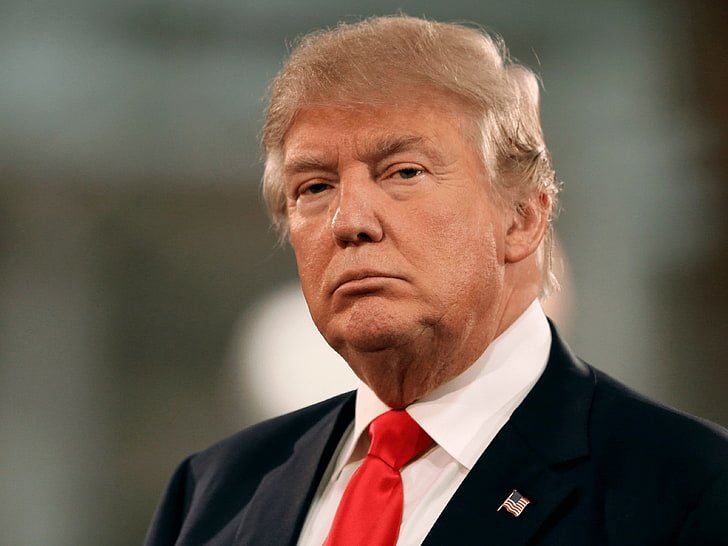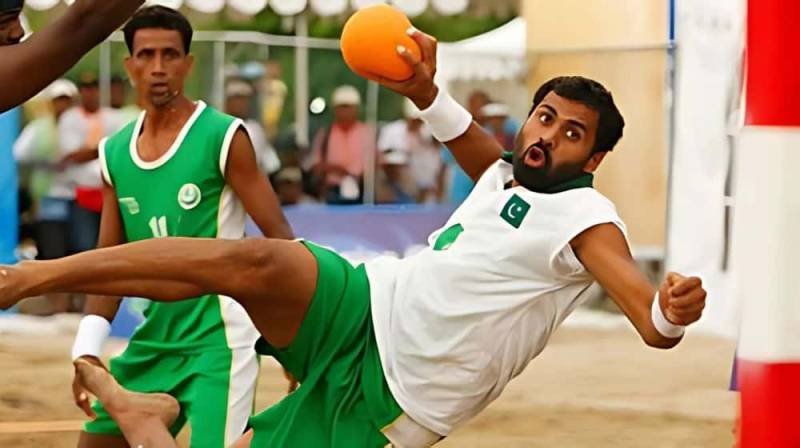Poliovirus Detected in Environmental Samples Across Seven Districts: Pakistan’s Battle Against Polio Faces Fresh Challenges
KARACHI: Pakistan’s fight against the crippling disease polio faces new hurdles as poliovirus has been detected in environmental samples collected from seven districts across the country. This concerning development was confirmed by the Pakistan Polio Eradication Programme in a report issued on Saturday, highlighting the ongoing threat posed by this highly infectious virus.
Districts Reporting Poliovirus in Environmental Samples
According to officials, environmental samples taken from various sewage sites between May 8 and May 23 revealed the presence of poliovirus in several regions. The districts where the virus was found include Quetta, Gwadar, South Waziristan Lower, South Waziristan Upper, Larkana, Rawalpindi, and Mirpurkhas. These findings point to the persistence of the virus in different parts of the country despite nationwide eradication efforts.
Environmental surveillance plays a crucial role in monitoring the silent circulation of the poliovirus. These samples are collected from sewage systems in urban areas to detect the virus’s presence in communities, even before clinical cases of polio paralysis emerge.
Positive Developments: Lahore and Pishin Declared Polio-Free in Recent Testing
While the detection of the virus in these seven districts is a serious concern, there was a silver lining. Environmental samples collected from Pishin and Lahore were declared free of poliovirus. These results offer some encouragement to the teams working on the ground, demonstrating that targeted vaccination efforts and community engagement can make a positive difference in eliminating the virus from high-risk zones.
Polio Vaccination Refusal on the Rise in Karachi
Amidst these findings, one of the most pressing challenges that has come to the fore is the increasing rate of vaccination refusal in Karachi, Pakistan’s largest city. According to the Emergency Operations Centre (EOC), the refusal rate witnessed a disturbing rise during the May vaccination campaign, with at least 37,711 parents turning down the polio drops for their children.
This represents an increase compared to April, when 37,360 parents declined to vaccinate their children. The EOC has repeatedly stressed that the refusal of the polio vaccine by parents remains one of the major obstacles to polio eradication in urban centres like Karachi.
“The refusal rate during the anti-polio campaign remains a constant challenge. Polio eradication requires ongoing support from parents,” the centre stated. Special focus is now being given to high-risk union councils in Karachi, where misunderstandings, misinformation, and a lack of awareness have been identified as key factors behind parents’ reluctance to vaccinate their children.
Why Polio Vaccination is Critical
Polio, or poliomyelitis, is a highly infectious disease that primarily affects children under the age of five. Caused by the poliovirus, the disease can invade the nervous system and, in some cases, lead to irreversible paralysis or even death. Unfortunately, there is no cure for polio once a person contracts the virus. However, vaccination remains the most effective and proven way to protect children from this debilitating disease.
Since the launch of polio eradication efforts, Pakistan has made substantial progress. The country had significantly reduced the number of annual polio cases, bringing it closer than ever to becoming polio-free. However, recent challenges—including rising refusal rates, difficult-to-reach communities, and environmental detections of the virus—are threatening to reverse these hard-won gains.
Pakistan’s Polio Burden in 2025
In 2025 so far, Pakistan has reported a total of 12 poliovirus cases. These include:
-
6 cases from Khyber Pakhtunkhwa (KP), particularly highlighting regions such as Bannu where the latest case was reported just this past Friday.
-
4 cases from Sindh
-
1 case from Punjab
-
1 case from Gilgit-Baltistan
These figures underscore the stubborn persistence of the virus in certain pockets of the country. Southern KP, in particular, continues to pose significant challenges for health teams. Ongoing security issues, geographical barriers, and the resistance to house-to-house vaccination campaigns have left many children in these areas unvaccinated and vulnerable to the virus.
National Immunisation Efforts
Despite the hurdles, Pakistan’s health authorities remain committed to eliminating polio from the country. This year, three major national campaigns—held in February, April, and May—have successfully reached over 45 million children. These massive efforts are supported by a workforce of around 400,000 frontline workers, including 225,000 female vaccinators, who play a vital role in gaining access to households and ensuring that every child receives their dose of the polio vaccine.
The Regional Reference Laboratory for Polio Eradication at the National Institutes of Health (NIH) Islamabad has commended the dedication of these workers and emphasized the importance of sustained campaigns, particularly in areas where vaccination coverage remains patchy.
Last month, the Pakistan Polio Eradication Programme officially launched its third National Immunisation Days (NIDs) campaign for 2025. This campaign aims to bolster immunity in children and interrupt the transmission of the poliovirus. The programme continues to focus on enhancing community awareness, engaging religious and community leaders, and addressing the concerns of parents who are hesitant about vaccination.
Factors Behind Rising Vaccine Refusal
Health experts point to several reasons behind the increase in vaccine refusal:
-
Misinformation and myths: False beliefs about the safety and purpose of polio vaccines continue to circulate, particularly on social media platforms.
-
Religious misconceptions: Some communities have been misled into believing that the vaccine is not permissible, despite clear endorsements from religious scholars.
-
Mistrust of government initiatives: In some areas, people associate vaccination campaigns with broader political or foreign agendas, leading to suspicion and resistance.
Officials stress that without overcoming these barriers, the goal of a polio-free Pakistan will remain elusive.
Global Context: Pakistan and Afghanistan
It is important to note that Pakistan, along with Afghanistan, remains one of the only two countries in the world where polio is still classified as endemic. Both countries face similar challenges, including insecurity, difficult terrain, and vaccine hesitancy, which hamper efforts to completely eradicate the virus.
What Lies Ahead
The Pakistan Polio Eradication Programme, in collaboration with international partners such as the World Health Organization (WHO) and UNICEF, plans to intensify efforts in the coming months. This includes:
-
Strengthening surveillance systems to detect and respond swiftly to any virus circulation
-
Expanding awareness campaigns to dispel myths and misinformation about vaccines
-
Focusing on high-risk districts and union councils with targeted vaccination and communication strategies
-
Enhancing coordination with Afghanistan to control cross-border transmission of the virus
Experts believe that if Pakistan can overcome the final hurdles—particularly vaccine refusal and access challenges in remote areas—the country stands a strong chance of achieving its goal of polio eradication in the near future.
The Role of Communities
Ultimately, the success of Pakistan’s polio eradication efforts hinges on the cooperation of local communities. Health officials are urging parents, community elders, teachers, and religious leaders to play their part in encouraging polio vaccination.
“Every child vaccinated brings us one step closer to a polio-free Pakistan,” said a spokesperson for the eradication programme. “Together, we can protect our future generations from the lifelong burden of this disease.”
Conclusion
The detection of poliovirus in seven districts serves as a wake-up call for Pakistan’s health authorities and communities alike. While significant progress has been made over the years, the final push requires overcoming persistent challenges such as vaccine refusal, misinformation, and hard-to-reach populations. With sustained commitment, community engagement, and robust immunisation efforts, Pakistan can still realize its dream of a polio-free future
I Deserve Nobel Peace Prize for Role in Pakistan-India Ceasefire: Donald Trump
Read This Artical
KARACHI: Pakistan’s fight against the crippling disease polio faces new hurdles as poliovirus has been detected in environmental samples collected from seven districts across the country. This concerning development was confirmed by the Pakistan Polio Eradication Programme in a report issued on Saturday, highlighting the ongoing threat posed by this highly infectious virus.
Districts Reporting Poliovirus in Environmental Samples
According to officials, environmental samples taken from various sewage sites between May 8 and May 23 revealed the presence of poliovirus in several regions. The districts where the virus was found include Quetta, Gwadar, South Waziristan Lower, South Waziristan Upper, Larkana, Rawalpindi, and Mirpurkhas. These findings point to the persistence of the virus in different parts of the country despite nationwide eradication efforts.
Environmental surveillance plays a crucial role in monitoring the silent circulation of the poliovirus. These samples are collected from sewage systems in urban areas to detect the virus’s presence in communities, even before clinical cases of polio paralysis emerge.
Positive Developments: Lahore and Pishin Declared Polio-Free in Recent Testing
While the detection of the virus in these seven districts is a serious concern, there was a silver lining. Environmental samples collected from Pishin and Lahore were declared free of poliovirus. These results offer some encouragement to the teams working on the ground, demonstrating that targeted vaccination efforts and community engagement can make a positive difference in eliminating the virus from high-risk zones.
Polio Vaccination Refusal on the Rise in Karachi
Amidst these findings, one of the most pressing challenges that has come to the fore is the increasing rate of vaccination refusal in Karachi, Pakistan’s largest city. According to the Emergency Operations Centre (EOC), the refusal rate witnessed a disturbing rise during the May vaccination campaign, with at least 37,711 parents turning down the polio drops for their children.
This represents an increase compared to April, when 37,360 parents declined to vaccinate their children. The EOC has repeatedly stressed that the refusal of the polio vaccine by parents remains one of the major obstacles to polio eradication in urban centres like Karachi.
“The refusal rate during the anti-polio campaign remains a constant challenge. Polio eradication requires ongoing support from parents,” the centre stated. Special focus is now being given to high-risk union councils in Karachi, where misunderstandings, misinformation, and a lack of awareness have been identified as key factors behind parents’ reluctance to vaccinate their children.
Why Polio Vaccination is Critical
Polio, or poliomyelitis, is a highly infectious disease that primarily affects children under the age of five. Caused by the poliovirus, the disease can invade the nervous system and, in some cases, lead to irreversible paralysis or even death. Unfortunately, there is no cure for polio once a person contracts the virus. However, vaccination remains the most effective and proven way to protect children from this debilitating disease.
Since the launch of polio eradication efforts, Pakistan has made substantial progress. The country had significantly reduced the number of annual polio cases, bringing it closer than ever to becoming polio-free. However, recent challenges—including rising refusal rates, difficult-to-reach communities, and environmental detections of the virus—are threatening to reverse these hard-won gains.
Pakistan’s Polio Burden in 2025
In 2025 so far, Pakistan has reported a total of 12 poliovirus cases. These include:
-
6 cases from Khyber Pakhtunkhwa (KP), particularly highlighting regions such as Bannu where the latest case was reported just this past Friday.
-
4 cases from Sindh
-
1 case from Punjab
-
1 case from Gilgit-Baltistan
These figures underscore the stubborn persistence of the virus in certain pockets of the country. Southern KP, in particular, continues to pose significant challenges for health teams. Ongoing security issues, geographical barriers, and the resistance to house-to-house vaccination campaigns have left many children in these areas unvaccinated and vulnerable to the virus.
National Immunisation Efforts
Despite the hurdles, Pakistan’s health authorities remain committed to eliminating polio from the country. This year, three major national campaigns—held in February, April, and May—have successfully reached over 45 million children. These massive efforts are supported by a workforce of around 400,000 frontline workers, including 225,000 female vaccinators, who play a vital role in gaining access to households and ensuring that every child receives their dose of the polio vaccine.
The Regional Reference Laboratory for Polio Eradication at the National Institutes of Health (NIH) Islamabad has commended the dedication of these workers and emphasized the importance of sustained campaigns, particularly in areas where vaccination coverage remains patchy.
Last month, the Pakistan Polio Eradication Programme officially launched its third National Immunisation Days (NIDs) campaign for 2025. This campaign aims to bolster immunity in children and interrupt the transmission of the poliovirus. The programme continues to focus on enhancing community awareness, engaging religious and community leaders, and addressing the concerns of parents who are hesitant about vaccination.
Factors Behind Rising Vaccine Refusal
Health experts point to several reasons behind the increase in vaccine refusal:
-
Misinformation and myths: False beliefs about the safety and purpose of polio vaccines continue to circulate, particularly on social media platforms.
-
Religious misconceptions: Some communities have been misled into believing that the vaccine is not permissible, despite clear endorsements from religious scholars.
-
Mistrust of government initiatives: In some areas, people associate vaccination campaigns with broader political or foreign agendas, leading to suspicion and resistance.
Officials stress that without overcoming these barriers, the goal of a polio-free Pakistan will remain elusive.
Global Context: Pakistan and Afghanistan
It is important to note that Pakistan, along with Afghanistan, remains one of the only two countries in the world where polio is still classified as endemic. Both countries face similar challenges, including insecurity, difficult terrain, and vaccine hesitancy, which hamper efforts to completely eradicate the virus.
What Lies Ahead
The Pakistan Polio Eradication Programme, in collaboration with international partners such as the World Health Organization (WHO) and UNICEF, plans to intensify efforts in the coming months. This includes:
-
Strengthening surveillance systems to detect and respond swiftly to any virus circulation
-
Expanding awareness campaigns to dispel myths and misinformation about vaccines
-
Focusing on high-risk districts and union councils with targeted vaccination and communication strategies
-
Enhancing coordination with Afghanistan to control cross-border transmission of the virus
Experts believe that if Pakistan can overcome the final hurdles—particularly vaccine refusal and access challenges in remote areas—the country stands a strong chance of achieving its goal of polio eradication in the near future.
The Role of Communities
Ultimately, the success of Pakistan’s polio eradication efforts hinges on the cooperation of local communities. Health officials are urging parents, community elders, teachers, and religious leaders to play their part in encouraging polio vaccination.
“Every child vaccinated brings us one step closer to a polio-free Pakistan,” said a spokesperson for the eradication programme. “Together, we can protect our future generations from the lifelong burden of this disease.”
According to officials, environmental samples taken from various sewage sites between May 8 and May 23 revealed the presence of poliovirus in several regions. The districts where the virus was found include Quetta, Gwadar, South Waziristan Lower, South Waziristan Upper, Larkana, Rawalpindi, and Mirpurkhas. These findings point to the persistence of the virus in different parts of the country despite nationwide eradication efforts.
Environmental surveillance plays a crucial role in monitoring the silent circulation of the poliovirus. These samples are collected from sewage systems in urban areas to detect the virus’s presence in communities, even before clinical cases of polio paralysis emerge.
Positive Developments: Lahore and Pishin Declared Polio-Free in Recent Testing
While the detection of the virus in these seven districts is a serious concern, there was a silver lining. Environmental samples collected from Pishin and Lahore were declared free of poliovirus. These results offer some encouragement to the teams working on the ground, demonstrating that targeted vaccination efforts and community engagement can make a positive difference in eliminating the virus from high-risk zones.
Polio Vaccination Refusal on the Rise in Karachi
Amidst these findings, one of the most pressing challenges that has come to the fore is the increasing rate of vaccination refusal in Karachi, Pakistan’s largest city. According to the Emergency Operations Centre (EOC), the refusal rate witnessed a disturbing rise during the May vaccination campaign, with at least 37,711 parents turning down the polio drops for their children.
This represents an increase compared to April, when 37,360 parents declined to vaccinate their children. The EOC has repeatedly stressed that the refusal of the polio vaccine by parents remains one of the major obstacles to polio eradication in urban centres like Karachi.
“The refusal rate during the anti-polio campaign remains a constant challenge. Polio eradication requires ongoing support from parents,” the centre stated. Special focus is now being given to high-risk union councils in Karachi, where misunderstandings, misinformation, and a lack of awareness have been identified as key factors behind parents’ reluctance to vaccinate their children.
Why Polio Vaccination is Critical
Polio, or poliomyelitis, is a highly infectious disease that primarily affects children under the age of five. Caused by the poliovirus, the disease can invade the nervous system and, in some cases, lead to irreversible paralysis or even death. Unfortunately, there is no cure for polio once a person contracts the virus. However, vaccination remains the most effective and proven way to protect children from this debilitating disease.
Since the launch of polio eradication efforts, Pakistan has made substantial progress. The country had significantly reduced the number of annual polio cases, bringing it closer than ever to becoming polio-free. However, recent challenges—including rising refusal rates, difficult-to-reach communities, and environmental detections of the virus—are threatening to reverse these hard-won gains.
Pakistan’s Polio Burden in 2025
In 2025 so far, Pakistan has reported a total of 12 poliovirus cases. These include:
-
6 cases from Khyber Pakhtunkhwa (KP), particularly highlighting regions such as Bannu where the latest case was reported just this past Friday.
-
4 cases from Sindh
-
1 case from Punjab
-
1 case from Gilgit-Baltistan
These figures underscore the stubborn persistence of the virus in certain pockets of the country. Southern KP, in particular, continues to pose significant challenges for health teams. Ongoing security issues, geographical barriers, and the resistance to house-to-house vaccination campaigns have left many children in these areas unvaccinated and vulnerable to the virus.
National Immunisation Efforts
Despite the hurdles, Pakistan’s health authorities remain committed to eliminating polio from the country. This year, three major national campaigns—held in February, April, and May—have successfully reached over 45 million children. These massive efforts are supported by a workforce of around 400,000 frontline workers, including 225,000 female vaccinators, who play a vital role in gaining access to households and ensuring that every child receives their dose of the polio vaccine. Poliovirus
The Regional Reference Laboratory for Polio Eradication at the National Institutes of Health (NIH) Islamabad has commended the dedication of these workers and emphasized the importance of sustained campaigns, particularly in areas where vaccination coverage remains patchy.Poliovirus
Last month, the Pakistan Polio Eradication Programme officially launched its third National Immunisation Days (NIDs) campaign for 2025. This campaign aims to bolster immunity in children and interrupt the transmission of the poliovirus. The programme continues to focus on enhancing community awareness, engaging religious and community leaders, and addressing the concerns of parents who are hesitant about vaccination. Poliovirus
Factors Behind Rising Vaccine Refusal
Health experts point to several reasons behind the increase in vaccine refusal:
-
Misinformation and myths: False beliefs about the safety and purpose of polio vaccines continue to circulate, particularly on social media platforms. Poliovirus
-
Religious misconceptions: Some communities have been misled into believing that the vaccine is not permissible, despite clear endorsements from religious scholars. Poliovirus
-
Mistrust of government initiatives: In some areas, people associate vaccination campaigns with broader political or foreign agendas, leading to suspicion and resistance. Poliovirus
Officials stress that without overcoming these barriers, the goal of a polio-free Pakistan will remain elusive.
Global Context: Pakistan and Afghanistan
It is important to note that Pakistan, along with Afghanistan, remains one of the only two countries in the world where polio is still classified as endemic. Both countries face similar challenges, including insecurity, difficult terrain, and vaccine hesitancy, which hamper efforts to completely eradicate the virus. Poliovirus
What Lies Ahead
The Pakistan Polio Eradication Programme, in collaboration with international partners such as the World Health Organization (WHO) and UNICEF, plans to intensify efforts in the coming months. This includes: Poliovirus
-
Strengthening surveillance systems to detect and respond swiftly to any virus circulation Poliovirus
-
Expanding awareness campaigns to dispel myths and misinformation about vaccines Poliovirus
-
Focusing on high-risk districts and union councils with targeted vaccination and communication strategies
-
Enhancing coordination with Afghanistan to control cross-border transmission of the virus Poliovirus
Experts believe that if Pakistan can overcome the final hurdles—particularly vaccine refusal and access challenges in remote areas—the country stands a strong chance of achieving its goal of polio eradication in the near future. Poliovirus
The Role of Communities
Ultimately, the success of Pakistan’s polio eradication efforts hinges on the cooperation of local communities. Health officials are urging parents, community elders, teachers, and religious leaders to play their part in encouraging polio vaccination. Poliovirus
“Every child vaccinated brings us one step closer to a polio-free Pakistan,” said a spokesperson for the eradication programme. “Together, we can protect our future generations from the lifelong burden of this disease.” Poliovirus
Conclusion
The detection of poliovirus in seven districts serves as a wake-up call for Pakistan’s health authorities and communities alike. While significant progress has been made over the years, the final push requires overcoming persistent challenges such as vaccine refusal, misinformation, and hard-to-reach populations. With sustained commitment, community engagement, and robust immunisation efforts, Pakistan can still realize its dream of a polio-free future




